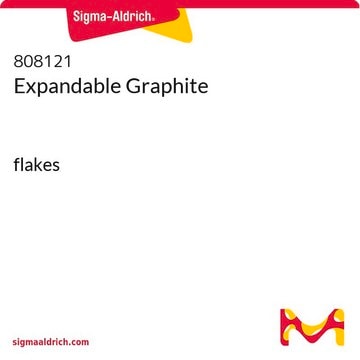About This Item
Recommended Products
form
flakes
Quality Level
particle size
+100 mesh (≥75% min)
mp
3652-3697 °C (lit.)
SMILES string
[C]
InChI
1S/C
InChI key
OKTJSMMVPCPJKN-UHFFFAOYSA-N
Looking for similar products? Visit Product Comparison Guide
Storage Class Code
11 - Combustible Solids
WGK
nwg
Flash Point(F)
Not applicable
Flash Point(C)
Not applicable
Personal Protective Equipment
Choose from one of the most recent versions:
Already Own This Product?
Find documentation for the products that you have recently purchased in the Document Library.
Customers Also Viewed
Articles
Novel Graphene‑Based Nanostructures Production, Functionalization, and Engineering
Novel Graphene‑Based Nanostructures Production, Functionalization, and Engineering
Novel Graphene‑Based Nanostructures Production, Functionalization, and Engineering
Novel Graphene‑Based Nanostructures Production, Functionalization, and Engineering
Our team of scientists has experience in all areas of research including Life Science, Material Science, Chemical Synthesis, Chromatography, Analytical and many others.
Contact Technical Service





